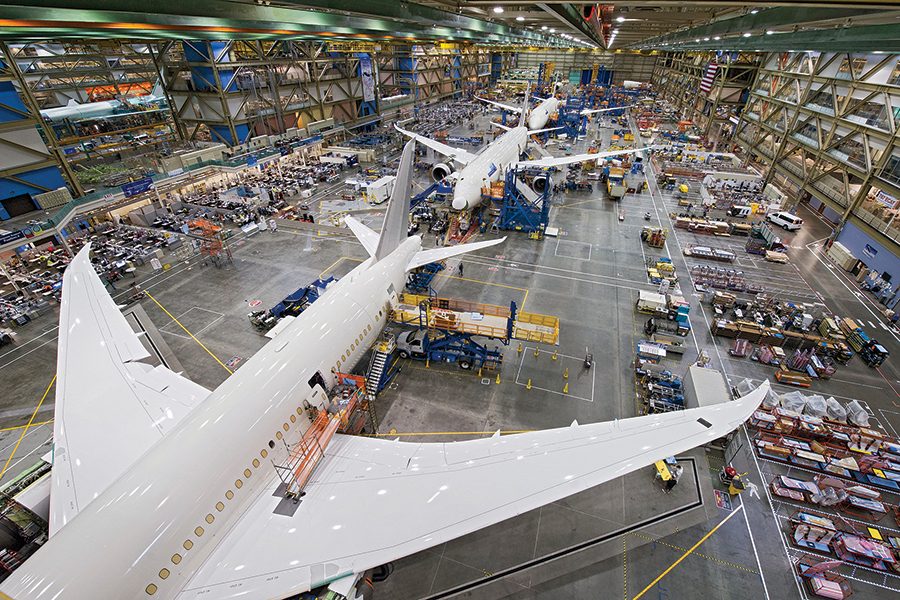
Home » Inslee targets $106M tax break as Boeing moves 787 production to South Carolina
Inslee targets $106M tax break as Boeing moves 787 production to South Carolina

October 14, 2020
The Boeing Co.’s decision to move all 787 Dreamliner production to South Carolina frustrated Gov. Jay Inslee who called for a review of tax breaks currently worth about $106 million per year.
He released a statement Oct. 1 saying he recently asked Boeing’s leadership what the company needed to keep 787 production in Washington state.
“In all our conversations, they never asked for anything. I understand the serious market forces Boeing faces today. What I don’t understand is why the company can’t commit to restoring production here when the market for this plane improves,” he said.
Boeing enjoys a long list of tax breaks even after the 2020 Legislature suspended, at Boeing’s request, a Business & Occupation (B&O) tax break that was worth about $91 million a year. The Chicago-based aerospace giant sought the repeal to avoid European Union tariffs.
The Legislature did not address several other tax breaks. According to Inslee’s office, Boeing’s current tax treatment includes:
- B&O tax credit for pre-production development.
- B&O tax credit for property taxes on land and buildings, leases, manufacturing and engineering and computer hardware and software.
- Sales tax exemption for computers used in development, design and aerospace services.
- Sales tax exemption for construction of new commercial airplane facilities.
Why should the Tri-Cities care? The industry and its 200 key players are concentrated in the Puget Sound area with few if any direct employees here, but it is very important to the state’s economy.
Aerospace generated an estimated $71 billion and employed 83,400 Washington workers in 2018, according to a 2019 economic impact study commissioned by Aerospace Works for Washington, a nonprofit advocacy group tied to the Greater Seattle Chamber of Commerce.
Indirectly, the industry supports 223,700 jobs and $20.6 billion in wages and $94.4 billion in business revenue through multiplier effects. Its effect felt statewide.
“This news falls hardest on the more than 1,000 Washington workers who build the 787, and many more who face uncertainty as a result of this decision. The aerospace industry will remain a major employer in our state with about 70,000 workers. The state is committed to maintaining support for those companies and workers,” Inslee said.
“But Boeing’s decision to take the 787 to South Carolina necessitates a review of our partnership and the company’s favorable tax treatment.”
Real Estate & Construction
KEYWORDS october 2020





